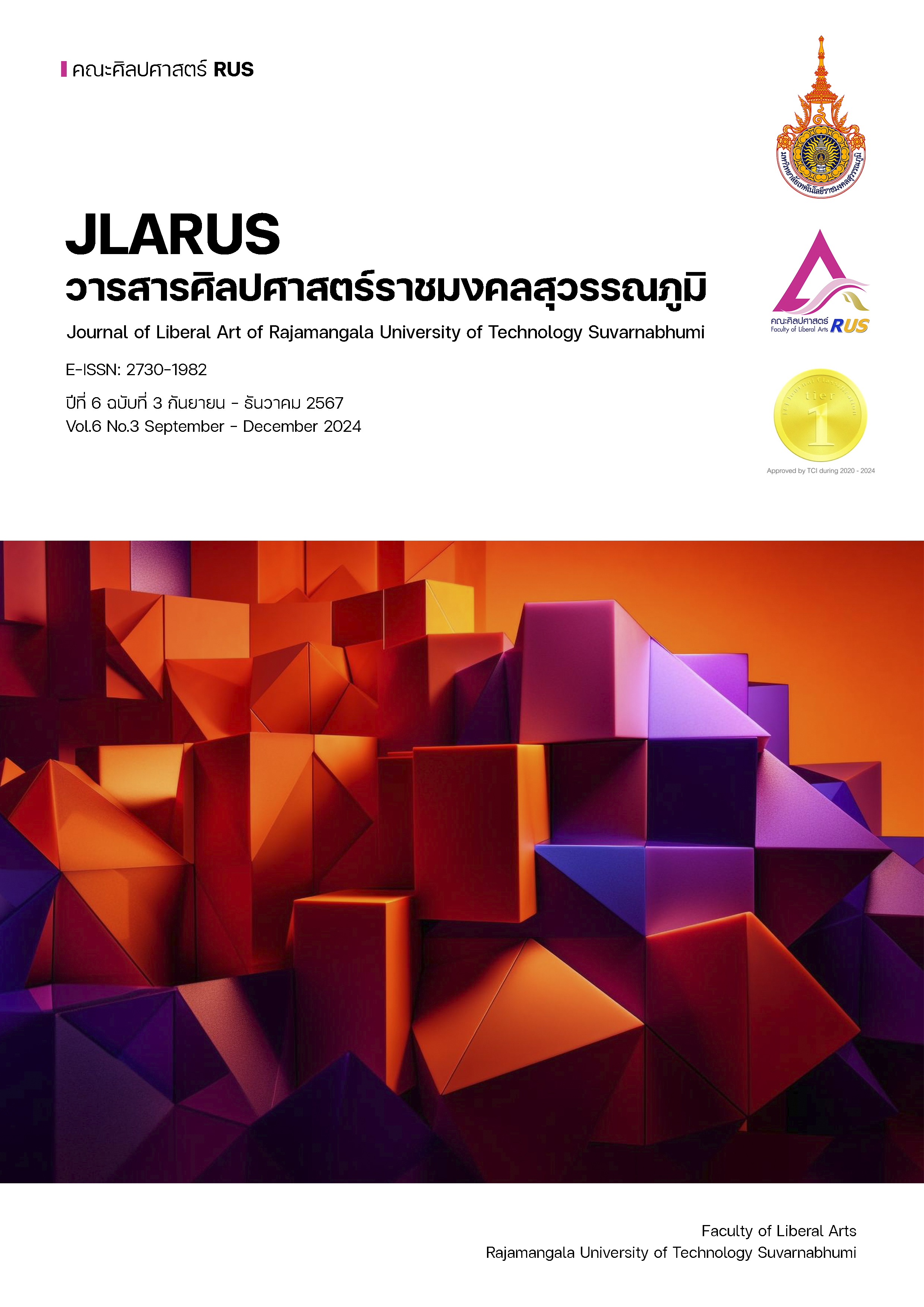CLASSIFICATION OF THAI SENTENCE STRUCTURES BASED ON PHASE STRUCTURE GRAMMAR FOR TEACHING THAI AS A FOREIGN LANGUAGE IN CHINA
Main Article Content
Abstract
The objectives of this study were to examine the phrase structure rules for Thai sentence structures (simple, complex, compound) using Phrase Structure Grammar (PSG) and to categorize Thai sentence structures (simple, complex, compound) using PSG. The study methodology used a qualitative approach based on content analysis. A total of 88 Thai sentences were collected from the section on “Types of Sentences” in the basic materials for Thai Language Learning "The Thai Language Norms Volume 3.”
The results provide valuable insights into the underlying structure of Thai sentences, offering pedagogical resources for teaching the Thai language to foreign learners in China. Additionally, it has been determined that the Thai language consists of three primary types of sentence structure, including simple, complicated, and compound, which can be distinguished by the phrase structure rule in each case, as analyzed by PSG. Both educators and students will benefit from acquiring a more comprehensive understanding of Thai sentence forms. In this way, the development of excellent Thai language skills and the promotion of cultural exchange between Thailand and China are both facilitated. The collection is a comprehensive compilation of Thai sentence categories, and its primary objective is to provide standards for the presentation of Thai grammar at educational institutions located throughout Thailand. In the same vein, it can be of assistance to students in comprehending and evaluating the sentence structures of the Thai language, and it can also be of use to Thai learners in developing a more profound understanding of the Thai language.
Article Details

This work is licensed under a Creative Commons Attribution-NonCommercial-NoDerivatives 4.0 International License.
References
Chomsky, N. (1956). Three models for the description of language. IRE Transactions on information theory, 2(3), 113-124.
Diller, A. (2001). Grammaticalization and Tai syntactic change. Essays in Tai linguistics, 139-175.
Ghazzoul, N. (2023). The Role of Linguistic Structure in Sentence and Text Comprehension: A Comparative Analysis of Depth-First Versus Breadth-First Models. Theory and Practice in Language Studies, 13(2), 267-275.
Haegeman, L. (1994). Introduction to Government & Binding Theory. Sintagma: revista de lingüística, 7, 85-87.
Hiranpradit, P. (2002). State of learning and teaching Thai languages to foreigners in Thailand. Nonthaburi: Sukhothai Thammathirat Open University.
Hou, P. (2019). Spelling errors in Thai made by Chinese students learning Thai as a foreign language. Manusya, 22(3), 358-374.
Lasnik, H., & Uriagereka, J. (2022). Structure. USA: MIT Press.
Office of the Basic Education Commission. (2018). Thai Language Norms Volume 3. Bangkok: Office of the Basic Education Commission.
Phimsawat, O. (2011). The syntax of pro-drop in Thai. (Doctoral dissertation). Newcastle: The University of Newcastle.
Pinker, S. (2014). The Sense of Style. USA: Penguin Books.
Reynolds, C. J. (2002). National identity and its defenders: Thailand today. Silkworm Books.
Singhapreecha, S. (2007). A reference grammar of Thai. Lingua, 117(8), 1497-1512.
Sudmuk, C. (2005). The syntax and semantics of serial verb constructions in Thai. The University of Texas at Austin.
Sukhahuta, R. (2002). Phrase Structure Grammar and Thai Natural Language Search. Chiang Mai Journal of Science, 29(2), 117-127.
Tang, Q. (2023). Research on the Similarities and Differences and Effects of Information Media Technology Used by Chinese and Thai Teachers in Thai Language Teaching under the New Normal. Proceedings of the 5th Life Education Academic Forum 2023, 421-424.
Wiangin, N. (2017). The Phrase Structure Rules of Thai Sentences. Suan Sunandha Academic & Research Review, 11(1), 69-84.
Williams, H. A. (2022). Phrase and Sentence Structure. Research Anthology on Applied Linguistics and Language Practices, 79-118.
Ya, M. (2023). Research on the application of flipped classroom teaching model in Thai language major course teaching. Proceedings of the 5th Life Education Academic Forum 2023, 583-586.


